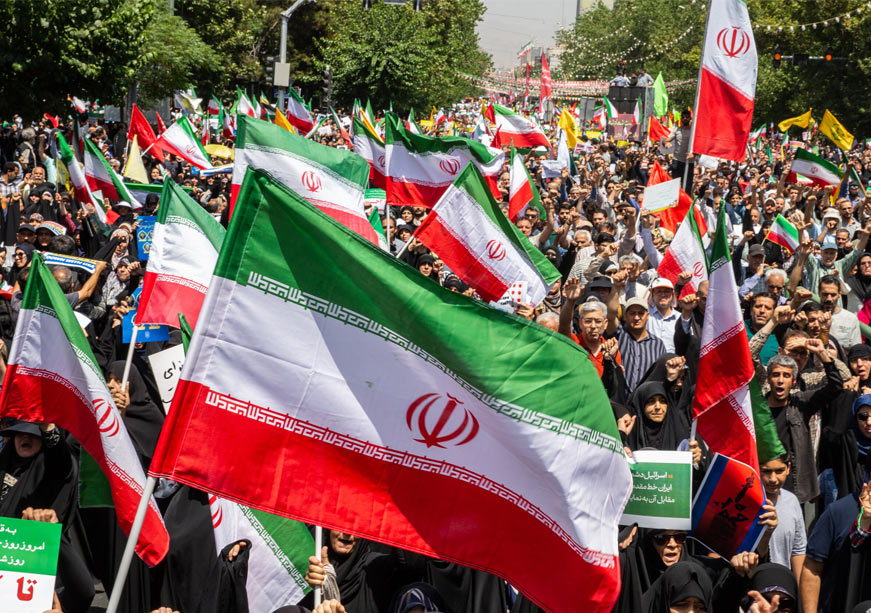Many federal governments, with exceptions such as the European Union countries (Recital 56 and Annex III), lack a legally binding comprehensive framework for responding to Artificial Intelligence (AI) in teaching, learning, and research. In this context, the United Arab Emirates (UAE) has adopted a decisive approach to integrating AI into its education strategies and goals, from K-12 to higher education, facilitated by the Ministry of Education’s strategic objectives. Simultaneously, these positive steps are contributing towards Objectives 5 and 6 of the UAE National Strategy for AI (2031).
Building AI Talent and Research Capacity in the UAE
Objective 6 aims to enhance knowledge production in the UAE, including university and commercial research and development (R&D), which will necessitate increased research investment and attract world-class academics to work in the UAE. The UAE aims to achieve this by establishing the National Virtual AI Institute, initiating the Key Thinkers programme, and setting up an AI library. To this end, the United Arab Emirates University (UAEU) has launched the High-Performance Computing Center (UAEU-HPC) — a strategic initiative aimed at empowering advanced research and fostering innovation in AI and data analytics. It enables the processing of massive datasets and the creation of complex simulation models, aiding advanced projects in areas such as genome analysis, climate modelling, material science, and security scenario simulations. Concurrently, the Mohamed bin Zayed University of Artificial Intelligence’s (MBZUAI) Institute of Foundation Models (IFM) is positioning the UAE as an epicentre of culturally inclusive research and development in AI — with innovations like JAIS, an open-source Arabic large language model and Nanda, an open-source Hindi language model.
Additionally, the MBZUAI has partnered with industrial entities such as IBM and GE Healthcare, as well as international academic and research institutions like the Weizmann Institute of Science, China Medical University, Carnegie Mellon University, Technology Innovation Institute, and École Polytechnique, to foster academic and research collaborations beyond borders.
The MBZUAI is also offering bachelor’s, master’s, and doctoral degrees in AI courses, similar to UAEU’s undergraduate minor in Artificial Intelligence. Joining these educational efforts is the Zayed University (ZU), which offers certification in AI for higher education and the AI literacy for students programme. The American University of Sharjah (AUS) has also established an AI Hub, a digital space for advancing AI education within the AUS community.
These endeavours are also advancing Objective 5 of the UAE National Strategy for AI (2031) to upskill and train talent for future jobs. Objective 5 aims to attract and train talent for future jobs that will be AI-enabled, as part of an effort to address long-term unemployment resulting from automation. The MBZUAI offers AI courses for executives and leaders in both government and the private sector — including data analytics and AI for leadership — for upskilling and successful implementation of these AI initiatives. This contributes to the training of government employees, part of Objective 5.
The UAE is equipping its students, citizens, and employees with market-relevant AI skills and establishing itself as an innovation hub through its partnerships with global education and research entities. Thus, these educational initiatives are simultaneously advancing Objectives 5 and 6 of the UAE National Strategy for AI.
Rising Adoption Among Students and Faculty
Beyond the UAE’s top-down supply of investments and initiatives, there is a pervasive demand for GenAI by higher education pedagogical actors. For example, a recent study using an online bilingual (Arabic and English) survey at UAE universities revealed high familiarity and weekly use of GenAI tools by university students across various disciplines and levels of study to complete their academic work. Additionally, faculty members are integrating GenAI tools into their teaching practices, such as lesson planning, brainstorming activity ideas, providing individualised feedback, and assisting students, demonstrating the transformative potential of AI in education. The study reveals that using AI-powered video games and interactive tutorials assists in teaching complex computer science concepts, enhancing student engagement.
AI Education in Early Schooling
Complimenting the positive reception of GenAI in higher education is the active integration of AI literacy in kindergarten within UAE public schools from 2025. This AI curriculum encompasses essential AI knowledge, such as “Foundational AI concepts, data and algorithms, software tools, ethical awareness, real-world applications, innovation and project design, and engagement with policy and community issues”. Furthermore, this AI integration is conducted in cycles to align with the developmental stages of students. For example, in kindergarten, AI is introduced through stories, visuals, and plays. In elementary grades, starting in cycle 1, students compare human and machine learning abilities, focusing on developing digital thinking tools. During cycle 2 of middle school, students learn about AI design, bias, and algorithms. In cycle 3 of high school, they begin to tackle real-world issues and learn advanced AI concepts like command engineering. Reinforcing the AI curriculum are initiatives such as the Artificial Intelligence National Championships organised by the UAE’s Ministry of Education, which is open to students of all cycles, to encourage their AI skills and learning. These efforts in the educational sphere prepare the youngest segment of the UAE’s population for an AI-enabled future, helping achieve Objective 5 of the UAE’s National Strategy for AI (2031).
Challenges
AI in education still requires significant effort, constant monitoring, and further development to avoid pitfalls arising from bias in AI algorithms. For example, to ensure the A-level exam results aligned with those of previous years, the UK government employed an algorithm to designate grades to exams. This algorithm systemically downgraded students from public schools while upgrading those from private schools, as it relied on historical school performance as a criterion in its grading process. The technology was fed existing biases, thereby enabling future bias. Further, there remain research gaps pertaining to GenAI’s impact on skill development and long-term knowledge retention. A 2025 study contended that there exists a risk of de-skilling due to excessive automation. Similarly, another study highlighted that using ChatGPT did not increase intrinsic motivation or long-term learning outcomes, though it provided short-term benefits such as improving essay scores.
While ChatGPT is widely used, there is a need for Gen AI and AI literacy among faculty and students, which will necessitate workshops and literacy programmes. Concerns over copyright—such as lawsuits against Meta for using copyrighted books to train AI models—and data privacy—such as WhatsApp’s AI chatbot sharing user contact details—are intensifying the risks of integrating AI into research production, including the potential for plagiarism. Moreover, rampant accommodation of AI in education also poses a risk of exacerbating issues of equity arising from unequal access to technology.
Despite these challenges, incorporating AI in the UAE’s education ecosystem contributes to Sustainable Development Goals (SDGs) such as Quality Education (SDG 4), since GenAI has the potential to cater to diverse learners’ needs and styles while fostering equitable education for learners from all socioeconomic backgrounds. Simultaneously, as highlighted above, AI in the UAE’s education space promises the fulfilment of various objectives of the UAE National Strategy for AI (2031) and signals its growing stature as a potential global AI leader.
Conclusion
In summary, the increasing innovations and initiatives by educational institutions in the field of AI are not only fulfilling the promises of Objective 5 and 6, but they are also paving the way for the UAE’s ambition to become a leader in AI research and development, fostering an AI-literate and informed population. While there remain complexities with AI in the educational sphere, responsible engagement from UAE actors can enhance AI’s benefits in education and help meet the objectives of the UAE’s National Strategy for AI (2031).
Mehak Kapur (PhD) is a researcher and writer in international relations and political science.











